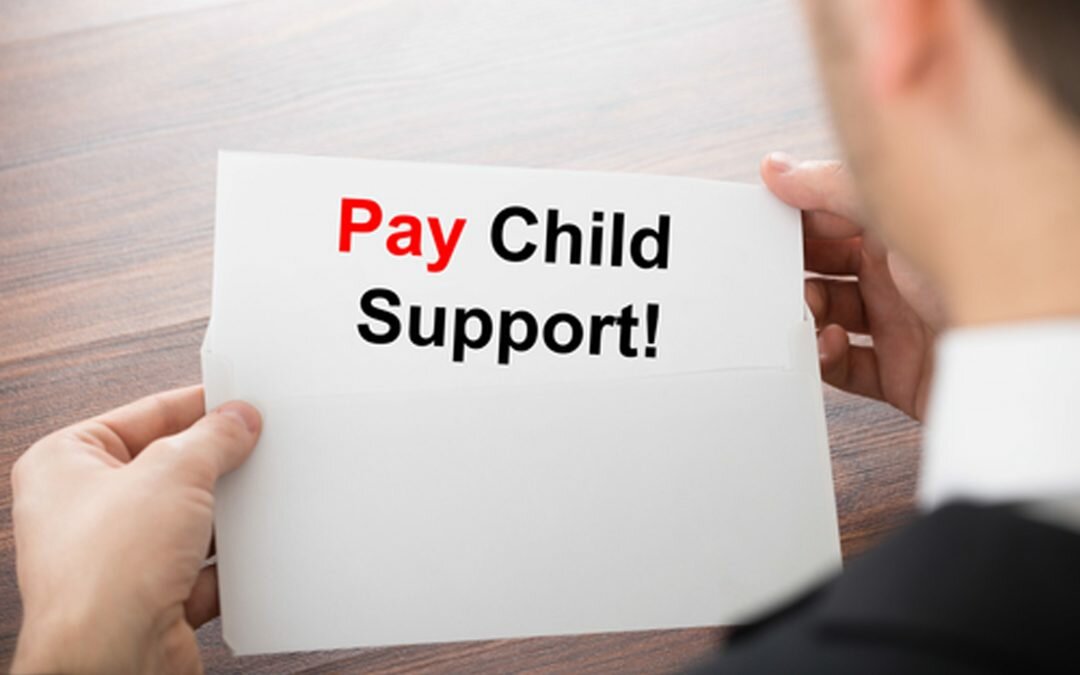Blog Section
Read The Latest Posts

Providing For The Support Of Children
As part of a divorce settlement or decision following a divorce trial, the divorce decree will set forth conditions involving child custody, child support, and child visitation. Many unwed parents are also in need of a child support arrangement for the support of their children.
The reason for this is very simple and if you still don’t know the answer, then continue reading. Child Support is required in most cases because in order for a person to raise a child he needs to pay for the food, education and everything else that the child will need while growing up. Unfortunately, all of these things will cost quite a lot of money and for one parent it can be really hard to pay. That’s why the child support is required, it allows that one parent to pay all the expenses for the children. It is like a simulation of a marriage because, under normal conditions, two parents would share their income and pay for their children’s education.

Getting the right amount of monthly payment from child support is often a huge problem and if you choose the wrong law firm, you can end up with a very low amount or even nothing. That’s why you always have to hire professionals such as the Steele law firm. With professionals like us on your side, you won’t have any issues getting the right amount of money from child support and you won’t have to struggle through life just to raise your child.
Our attorneys at the Steele Law Firm are considered experts in negotiating child support payments. When the parties are unable to resolve child support issues, we can explore alternative ways of reaching a settlement such as mediation and arbitration.
Illinois law provides that both parents have a duty to contribute to the support of their child. Even in cases where one parent has the ability to support the child without contribution from the other parent, the court is reluctant to release one parent from contributing to the support of the child.
How is Child Support Calculated?
Using the Illinois child support guidelines, the attorneys at the Steele Law Firm will help you determine the proper amount of child support. These guidelines set forth the percentage of income that the non-custodial parent will be ordered to pay, based on the number of children.
These guidelines are as follows:
It is important to note that child support is calculated using one’s net income from all sources. Net income is determined by taking the gross income and then subtracting all mandatory deductions such as Taxes, union dues, health insurance for the minor child. Voluntary deductions, such as contribution to 401(k) accounts, are not deducted.

Income may be generated and used for child support purposes from several sources other than from employment. For example, rental property income or income generated from investments may be considered when calculating child support.
Child Support Obligations
The obligation to pay child support continues until the child is emancipated. In general, a child is considered emancipated when he/she reaches the age of 18. However, if a child attains the age of 18 while he/she is still attending high school, provisions for the payment of child support are not terminated until the date that the child graduates from high school or the date that the child attains the age of 19, whichever is earlier. If a child has special needs, including mental or physical disability, the court may order that support payments continue beyond the typical termination events.
A parent’s obligation to pay child support does not terminate with the death of the obligated parent.
Therefore, when entering an order for child support, the court will generally require the obligated parent to obtain a life insurance policy for a specific amount, with the child listed as the sole beneficiary of the policy.
Visitation Arrangements & Child Support
It is important to note that a parent’s obligation to pay child support is independent of issues related to visitation. An obligated parent may not withhold child support because he/she has been denied visitation rights. Each issue is addressed separately by the court, and therefore it is the obligation of a parent to pay child support pursuant to the terms of the order for support whether or not he/she is permitted to have visitation with the child.
Paternity
Our firm’s attorneys are experienced and knowledgeable with respect to each step in a paternity proceeding and the resulting child support payments and parenting time issues if paternity is established. Paternity cases can involve issues ranging from DNA testing to weighing competing presumptions as to paternity to determination of child support and parenting time. If more than one person has filled the role of a father, the DNA test results may be only a small piece of the puzzle.
Child Support Modifications
In any divorce child support is subject to the continuing jurisdiction of the court. Things like changes in a parent’s income, changes in the need for or cost of child care, or other major financial changes may justify a re-examination of child support.

What is in the best interest of a child will evolve over time, as they grow and their needs change. At the Steele Law Firm, we have a great deal of experience requesting these kinds of modifications to child support and custody orders.
Contacting an Illinois Child Support Attorney
If you are dealing with an Illinois child support or paternity matter, you need the advice and assistance of a skilled, experienced child support attorney to help you, your child, and to protect all of your legal rights.
Contact us or give us a call today at (312) 893-5888 or 1-800-DIVORCE (in Northern Illinois) to learn more about how we can help you or set up a FREE consultation.
We Can Assist You With:
- Matrimonial Law
- Family Law
- Divorce
- Domestic Relations
- Dissolution of Marriage and Legal Separation
- Litigation in Trial Courts
- Negotiated Settlements
- Alternative Dispute Resolution, such as Collaborative Law and Mediation
- Appeals to Reviewing Courts
- Financial Discovery and Analysis
- Property Division
- Retirement Benefits
- Qualified Domestic Relations Orders (QDROs)
- Paternity
- Adoption
- Child Custody, including Joint Custody and Sole Custody
- Child Visitation
- Child Support
- Child Abductions
- Maintenance, formerly known as Alimony
- Spousal Support
- Marital Settlement Agreements
- Premarital Agreements
- Postnuptial Agreements
- Annulments
- Domestic Violence
- Post-Decree and Post-Judgment Issues and Modifications
- Restraining Orders
- Separation Agreements

Benefits Of Hiring A Law Firm
If you ever find yourself in a situation when you have to go to the court or you just have to deal with some legal issues, then the right choice is to hire a law firm. Of course, some people might not think like this and they will say they can do it all by themselves. We can say this with a lot of confidence, if you decide to do it yourself, you will just create bigger problems that will cost you more money and time. Going to court without a professional is like simply giving up on all of your rights because you won’t be able to fight for them. A lawyer is a person who has dedicated their entire life towards helping out other people with legal issues and you simply cannot compare yourself to that amount of professional experience.

In this article, we want to focus on explaining to people the great benefits that you can get from hiring a professional law firm. So, if you are interested in learning more about these benefits, make sure to read this article carefully and at the end, you might just have a different opinion about law firms.
Save Money
Many people believe that Law Firms are here to take your money and that’s why they decide not to hire them. well, the truth is that they are not here to take your money, in fact, they are here to save you money. How is that possible you might ask, well law firms have one job and that is to represent you in court and provide you with correct information about your legal rights. If you decide not to hire lawyers to represent you, then all the hard work will be on you and most likely you don’t know your rights. This will simply result in you having to deal with issues far more complicated and that will cost you extra money.

When you hire a professional to represent you, it is their job to do everything in their power and knowledge to save you from paying unnecessary services. The money you invest in hiring a lawyer cannot be compared to the amount that you can save by having one on your side.
Better Chances
When in the court, your only goal should be to win the case and that can be quite complicated, especially if you don’t have professional help. refusing professional help in the court is one of the worst choices that you can make because the chances of you winning a court case without an attorney are quite slim.
Of course, if you have some experience and you understand all of you rights, you might stand a chance, but even then it is recommended to hire a professional law firm.

Collaborative Divorce & Mediation
Finding Solutions That Meet Your Needs
In the realm of family law, many people do not feel that traditional litigation is always the best method for resolving issues between people. Alternative methods of dispute resolution such as collaborative divorce, mediation and arbitration have been gaining in popularity for some time.

At the Steele Law Firm, we understand that family law is about more than just the legal issues. We are committed to representing you in whatever context is best for you overall. Contact us to schedule a FREE initial consultation about your options.
An Agreement to Stay Out of Court
Collaborative divorce is an increasingly popular alternative to both traditional litigation and mediation. The central aspect of collaborative divorce is a formal agreement to resolve the issues without going to court.
This type of divorce has a lot of great benefits for both sides and that’s why this is becoming so popular these days. Of course, there are some situations where the divorce cannot be collaborative and then you have no other choice but to take it to the court. There are even some cases when one person wants to get divorced and the others don’t and then you cannot have a collaborative divorce at all. If you are interested in knowing what the benefits of this type of divorce are, then we suggest you look it up online because there are many great articles that are explaining everything simply.

In collaborative divorce, each party is represented by an attorney, ensuring that they are aware of their rights and giving them the experience of someone who has worked on divorce cases before. It is key to know how to start a collaborative divorce and what are the responsibilities of both parties. That’s why it is a must to hire a professional law firm who will provide an attorney for you. Even though this isn’t a court case, you still need a professional because there are some things that need to be done the right way and you can easily achieve that if you have help from someone who has many years of professional experience. This way, you are avoiding any unnecessary issues from happening.
While the parties have a legal right to fall back on the courts, the attorneys agree to withdraw from the case if it ends up in court. The expectation is that the lawyers will, therefore, use their expertise to find solutions to the issues the parties face, rather than encouraging litigation.
Making Use of Neutral Expertise
Mediation
Mediation is also a viable alternative procedure, and many Illinois judicial districts will order mediation before a divorce case goes to trial. A mediator is a neutral third person who helps the two parties in a divorce resolve issues such as asset division, child custody and support, and maintenance out of court. Mediation can be particularly useful when only a small number of issues remain to be resolved to reach a divorce settlement. In many judicial districts, mediation is required before a case is allowed to proceed to trial.
The mediator could be a lawyer or another professional. If the issues involve parenting child custody matters, the mediator could be a mental health professional. If the issue is financial, a mediator could be certified, public accountant. A former or retired judge could serve as a mediator. Our lawyers at the Steele Law Firm also serve as mediators or settlement masters.

Mediation is not binding on either party unless a signed agreement is reached, and either party can proceed to litigate the issues in court if no resolution is reached. However, judicial decisions can be unpredictable, so it’s often better to attempt mediation first. A skillful lawyer can discuss with the party, before and during mediation, the pros, and cons of various settlement options. The parties frequently have their lawyers attend mediation sessions with them.
Arbitration
Arbitration is a similar procedure, but the decision of an arbitrator is binding, whereas the outcome of mediation is only binding if the parties sign an agreement. Unlike mediation, arbitration is binding as to the issues decided and an arbitration proceeding can be much like a trial, although it does not take place in a courtroom.
At the Steele Law Firm, we can provide you with a mediator, arbitrator or attorney who can represent you in a collaborative divorce, mediation or arbitration.
Contacting an Illinois Collaborative Law Attorney or Mediator
If you are dealing with an Illinois family law matter, you need the advice and assistance of a skilled, experienced family law attorney to help you, your children, and to protect all of your legal rights as time-efficient and cost-effectively as possible.
Contact us or give us a call today at (312) 893-5888 or 1-800-DIVORCE (in Northern Illinois) to learn more about how we can help you or set up a FREE consultation.
We Can Assist You With:
- Matrimonial Law
- Family Law
- Divorce
- Domestic Relations
- Dissolution of Marriage and Legal Separation
- Litigation in Trial Courts
- Negotiated Settlements
- Alternative Dispute Resolution, such as Collaborative Law and Mediation
- Appeals to Reviewing Courts
- Financial Discovery and Analysis
- Property Division
- Retirement Benefits
- Qualified Domestic Relations Orders (QDROs)
- Paternity
- Adoption
- Child Custody, including Joint Custody and Sole Custody
- Child Visitation
- Child Support
- Child Abductions
- Maintenance, formerly known as Alimony
- Spousal Support
- Marital Settlement Agreements
- Premarital Agreements
- Postnuptial Agreements
- Annulments
- Domestic Violence
- Post-Decree and Post-Judgment Issues and Modifications
- Restraining Orders
- Separation Agreements

Child Support
Providing for the Support of Children
As part of a divorce settlement or decision following a divorce trial, the divorce decree will set forth conditions involving child custody, child support, and child visitation. Many unwed parents are also in need of a child support arrangement for the support of their children.
The reason for this is very simple and if you still don’t know the answer, then continue reading. Child Support is required in most cases because in order for a person to raise a child he needs to pay for the food, education and everything else that the child will need while growing up. Unfortunately, all of these things will cost quite a lot of money and for one parent it can be really hard to pay. That’s why the child support is required, it allows that one parent to pay all the expenses for the children. It is like a simulation of a marriage because, under normal conditions, two parents would share their income and pay for their children’s education.

Getting the right amount of monthly payment from child support is often a huge problem and if you choose the wrong law firm, you can end up with a very low amount or even nothing. That’s why you always have to hire professionals such as the Steele law firm. With professionals like us on your side, you won’t have any issues getting the right amount of money from child support and you won’t have to struggle through life just to raise your child.
Our attorneys at the Steele Law Firm are considered experts in negotiating child support payments. When the parties are unable to resolve child support issues, we can explore alternative ways of reaching a settlement such as mediation and arbitration.
Illinois law provides that both parents have a duty to contribute to the support of their child. Even in cases where one parent has the ability to support the child without contribution from the other parent, the court is reluctant to release one parent from contributing to the support of the child.
How is Child Support Calculated?
Using the Illinois child support guidelines, the attorneys at the Steele Law Firm will help you determine the proper amount of child support. These guidelines set forth the percentage of income that the non-custodial parent will be ordered to pay, based on the number of children.
These guidelines are as follows:
It is important to note that child support is calculated using one’s net income from all sources. Net income is determined by taking the gross income and then subtracting all mandatory deductions such as Taxes, union dues, health insurance for the minor child. Voluntary deductions, such as contribution to 401(k) accounts, are not deducted.

Income may be generated and used for child support purposes from several sources other than from employment. For example, rental property income or income generated from investments may be considered when calculating child support.
Child Support Obligations
The obligation to pay child support continues until the child is emancipated. In general, a child is considered emancipated when he/she reaches the age of 18. However, if a child attains the age of 18 while he/she is still attending high school, provisions for the payment of child support are not terminated until the date that the child graduates from high school or the date that the child attains the age of 19, whichever is earlier. If a child has special needs, including mental or physical disability, the court may order that support payments continue beyond the typical termination events.
A parent’s obligation to pay child support does not terminate with the death of the obligated parent. Therefore, when entering an order for child support, the court will generally require the obligated parent to obtain a life insurance policy for a specific amount, with the child listed as the sole beneficiary of the policy.
Visitation Arrangements & Child Support
It is important to note that a parent’s obligation to pay child support is independent of issues related to visitation. An obligated parent may not withhold child support because he/she has been denied visitation rights. Each issue is addressed separately by the court, and therefore it is the obligation of a parent to pay child support pursuant to the terms of the order for support whether or not he/she is permitted to have visitation with the child.
Paternity
Our firm’s attorneys are experienced and knowledgeable with respect to each step in a paternity proceeding and the resulting child support payments and parenting time issues if paternity is established. Paternity cases can involve issues ranging from DNA testing to weighing competing presumptions as to paternity to determination of child support and parenting time. If more than one person has filled the role of a father, the DNA test results may be only a small piece of the puzzle.
Child Support Modifications
In any divorce child support is subject to the continuing jurisdiction of the court. Things like changes in a parent’s income, changes in the need for or cost of child care, or other major financial changes may justify a re-examination of child support. What is in the best interest of a child will evolve over time, as they grow and their needs change. At the Steele Law Firm, we have a great deal of experience requesting these kinds of modifications to child support and custody orders.
Contacting an Illinois Child Support Attorney
If you are dealing with an Illinois child support or paternity matter, you need the advice and assistance of a skilled, experienced child support attorney to help you, your child, and to protect all of your legal rights.
Contact us or give us a call today at (312) 893-5888 or 1-800-DIVORCE (in Northern Illinois) to learn more about how we can help you or set up a FREE consultation.
We Can Assist You With:
- Matrimonial Law
- Family Law
- Divorce
- Domestic Relations
- Dissolution of Marriage and Legal Separation
- Litigation in Trial Courts
- Negotiated Settlements
- Alternative Dispute Resolution, such as Collaborative Law and Mediation
- Appeals to Reviewing Courts
- Financial Discovery and Analysis
- Property Division
- Retirement Benefits
- Qualified Domestic Relations Orders (QDROs)
- Paternity
- Adoption
- Child Custody, including Joint Custody and Sole Custody
- Child Visitation
- Child Support
- Child Abductions
- Maintenance, formerly known as Alimony
- Spousal Support
- Marital Settlement Agreements
- Premarital Agreements
- Postnuptial Agreements
- Annulments
- Domestic Violence
- Post-Decree and Post-Judgment Issues and Modifications
- Restraining Orders
- Separation Agreements

Child Custody & Visitation
Finding Custody and Visitation Solutions
Child custody and visitation are areas, which in an ideal world, would be settled amicably by the parents taking into consideration the parenting skills of each parent and the best interests of the child. However, in reality, parents often have pretty significant reasons for getting divorced. Sometimes these reasons revolve around one spouse trying to protect the children from the other spouse. In Illinois, determination of child custody is based on the best interest of the child standard.
For the child, it is the best if he/she grows up with both parents because this way they can get the greatest experience while growing up. Taking away one parent from a child, especially at some young age can affect their life and future, that’s why it is always the best if both parents have some contact with their child. In some cases, if the divorce was happening for the simple reason of adults not liking each other anymore, then there can be arranged some visitation solutions that will allow both parents to connect with their child. Unfortunately, in most cases that is not the way things go and people are divorcing just to protect their child and provide them with a safer and brighter future.

In cases like that, usually one of the parents will get the full custody of the child and the other one will not be allowed to contact the family anymore. Having mutual satisfaction is key to having a happy child because growing up without a parent can be very difficult. Usually, if the child is very young they are being affected even more because they never get to experience what it is like to have both parents raising them.
In matters involving child custody, the Steele Law Firm will try to reach a mutually satisfactory agreement prior to going to trial. If we are unable to achieve a pre-trial settlement that meets your needs, we will vigorously and aggressively represent your interests at trial.
The Best Interest of the Child
As a preliminary matter in determining the best interest of the child, a court will often look at which parent has been the primary caregiver of the child. Specifically, the court may ask the following questions in determining who the primary caregiver of the child has been:
Who has the child lived with?
Who prepared the child’s meals?
Who prepares the child for school including in the morning as well as with respect to the child’s homework?
Who schedules and takes the child to doctor’s, dentist’s and any other appointments, as necessary?
Who stays home when the child is sick and unable to go to school?
As the child matures, the court may seek the child’s input regarding who the child’s residential custodian will be. However, one should be extremely cautious about trying to influence a child’s decision in a custody dispute. The psychological effects of the child being asked to choose between parents may be devastating if not dealt with in an appropriate manner being sensitive to the child’s desire to maintain a healthy relationship with both parents.
The court may appoint some Guardian Ad litem for the child. The guardian advocates in court for the child’s best interests and will investigate and report to the court regarding the facts and circumstances in dispute. Often the guardian will make recommendations to the judge.

Additionally, an attorney may be appointed to represent the child’s interest. Any attempt by a parent to influence the child will be readily apparent to the attorney who is appointed to represent the child and such attempted influence may weigh against the parent.
The court may also appoint a psychologist to do a psychological profile of the family to help the judge make a decision concerning the best interest of the children.
Parental Responsibility
In determining child custody, the allocation of parental responsibilities must be considered. Parental responsibilities fall into two categories:
Decision-making – which includes educational, medical and religious decisions.
Parenting time – Many states have guidelines that divide “parenting time” between the parents, however, Illinois does not have such guidelines. As every situation is different, Illinois courts look to the intricacies of the parent-child relationship in each individual case.
Usually, decision-making responsibilities are shared between the two parties. However, if the parents can’t agree, the judge could award sole decision-making responsibility to one parent.
While both parties may have parenting time, it may be unequal. The child or children may live with one parent 90 percent of the time and with the other parent 10 percent of the time. The party with the majority of parenting time (meaning overnights) is often called the custodial parent.
Our child custody attorneys believe in creating a unique parental responsibility plan specifically tailored to each family’s needs. Oftentimes, these cases call for an evaluation of parents and/or children before any decisions can be made. At the Steele Law Firm, we are equipped to offer experienced counsel in these situations and with matters where a child needs a legal representative or child and family investigator.
When the parties are unable to resolve child custody issues, we can explore alternative ways of reaching a settlement.
Grandparent Visitation
Our lawyers are experienced in representing parents, grandparents and other third parties in proceedings where a grandparent or third party seeks child custody and visitation rights.
Parent Relocation

A parent may wish to relocate outside of Illinois following a divorce, taking their child or children with them. Court approval is often required before this can happen. Our lawyers are experienced both in requesting relocation and in representing the parent who opposes such a move.
Child Custody Modifications
In any divorce, parenting time, decision-making, and time schedules are subject to the continuing jurisdiction of the court, and one or more “modification” suits may arise after the divorce. As children grow, their needs and schedules change. What was in the best interests of a child at age five might not be in the best interests at age 13. If parenting time changes, child support may also be affected.
Contacting an Illinois Child Custody or Visitation Attorney
If you are dealing with an Illinois child custody or visitation matter, you need the advice and assistance of a skilled, experienced child custody attorney to help you protect you, your children, and all of your legal rights Contact us or give us a call today at (312) 893-5888 or 1-800-DIVORCE (in Northern Illinois) to learn more about how we can help you or set up a FREE consultation.
We Can Assist You With:
- Matrimonial Law
- Family Law
- Divorce
- Domestic Relations
- Dissolution of Marriage and Legal Separation
- Litigation in Trial Courts
- Negotiated Settlements
- Alternative Dispute Resolution, such as Collaborative Law and Mediation
- Appeals to Reviewing Courts
- Financial Discovery and Analysis
- Property Division
- Retirement Benefits
- Qualified Domestic Relations Orders (QDROs)
- Paternity
- Adoption
- Child Custody, including Joint Custody and Sole Custody
- Child Visitation
- Child Support
- Child Abductions
- Maintenance, formerly known as Alimony
- Spousal Support
- Marital Settlement Agreements
- Premarital Agreements
- Postnuptial Agreements
- Annulments
- Domestic Violence
- Post-Decree and Post-Judgment Issues and Modifications
- Restraining Orders
- Separation Agreements



